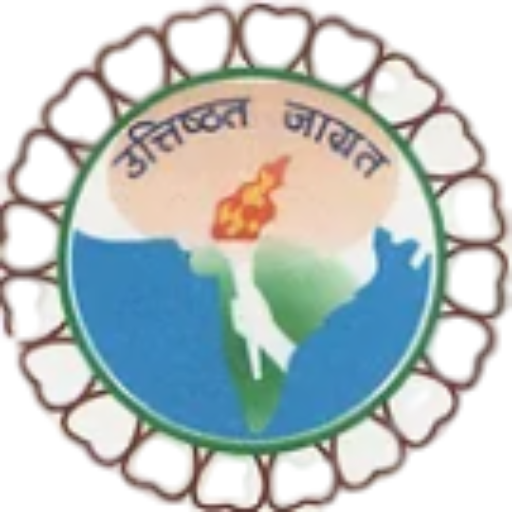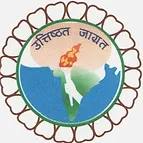Governance, Accountability & Public
Public governance consists of the arrangements put in place to ensure that the intended outcomes for stakeholders are defined and achieved.
Accountability is an essential component of public governance. Accountability of government to citizens–the idea that the public sector must answer to the people for its performance–is the foundation for good governance. Under good governance, public expenditures are allocated to maximize welfare, revenues are collected efficiently, and the public at large has access to a number of public services including water and sanitation, infrastructure, education and health. Unfortunately in many developing countries, the people suffer the results of dysfunctional governance systems that fail to provide even minimal levels of vital public services. This happens because of an acute deficiency in government accountability, such that public servants lack the incentives to show results or manage government resources more efficiently. The key message of the New Institutional Economics is that incentives matter. In the public sphere, incentives for public servants and policymakers are derived from the countries’ accountability frameworks–the rewards, sanctions, and measurement of performance–that shape public sector performance. Fiscal Management and Accountable Public Governance applies this fundamental insight to fiscal/budgetary analysis and public service delivery, giving the reader tools and real world examples from around the globe of institutional arrangements to help citizens hold government accountable for their performance.
Features of a good system of public governance:
- Ensuring openness and comprehensive stakeholder engagement.
- Defining outcomes in terms of sustainable economic, social and environmental benefits.
- Determining the interventions necessary to optimize the achievement of the intended outcomes.
- Developing the entity’s capacity, including the capability of its leadership and the individuals within it.
- Managing risks and performance through robust internal control and strong public financial management.
- Implementing good practices in transparency, reporting and audit, to deliver effective accountability.
Ensuring good governance across institutions:
Accountability plays a fundamental role in ensuring good governance across institutions and processes. When public officers have an obligation to explain and justify their conduct towards other public authorities, or taxpayers and citizens, they are exposed to the judgement and, possibly, the sanctions that can be imposed for any wrongdoing.
Seeking improvements in accountability and public governance systems:
Running alongside a programme of decentralisation of public functions, the reforms resulted in the creation of a modern macroeconomic and fiscal framework that introduced many innovative components.
Fiscal transfers to sub-national governments were linked to cost indicators and performance targets, consistent budget formats were introduced across jurisdictions, and financial calendars and IT systems were upgraded alongside the training of thousands of civil servants in new accounting techniques and practices.
By making information available on a real-time basis, information technologies may reduce the theft of public funds. We analyze a large field experiment and the nationwide scale-up of a reform to India’s workfare program. Advance payments were replaced by “just-in-time” payments, triggered by e-invoicing, making it easier to detect misreporting. Leakages went down: program expenditures dropped by 24 percent, while employment slightly increased; there were fewer fake households in the official database; and program officials’ personal wealth fell by 10 percent. However, payment delays increased. The nationwide scale-up resulted in a persistent 19 percent reduction in program expenditure.
Initiatives for Good Governance in India
Right to Information
- As a party to the International Covenant on Civil and Political Rights (ICCPR), India is under an international obligation to effectively guarantee citizens the Right to Information as per Article 19 of the ICCPR.
- RTI Act, 2005 marks a significant shift in Indian democracy. It gives greater access of the citizen to the information which in turn improves the responsiveness of the government to community needs.
- The right to information promotes openness, transparency and accountability in administration by making the government more open to public scrutiny.
E-Governance
- The National e-Governance Plan envisions to make all government services accessible to the common man in his locality, through common service delivery outlets and ensure efficiency, transparency & reliability of such services at affordable costs.
- E-Governance effectively delivers better programming and services in the era of newly emerging information and communication technologies (ICTs), which herald new opportunities for rapid social and economic transformation worldwide.
- E-Governance has a direct impact on its citizens who derive benefits through direct transactions with the services offered by the government.
-Programs launched under e-Governance: Pro-Active Governance and Timely Implementation (PRAGATI), Digital India Program, MCA21 (to improve the speed and certainty in the delivery of the services of Ministry of Company Affairs), Passport Seva Kendra (PSK), online Income tax return, etc.
- Focus on ‘Minimum Government, Maximum Governance’.
Legal Reforms
- The Central Government has scrapped nearly 1,500 obsolete rules and laws with an aim to bring about transparency and improve efficiency.
- Reform criminal justice and procedural laws with focus on pre-institution mediation.
Ease of Doing Business
- Steps were taken by the government to improve business conditions including legislation meant to improve the country’s business environment and policy ecosystems (such as the Bankruptcy Code, the Goods and Services Tax or GST, and the anti-money-laundering law).
- Government has launched the ‘Make in India’ initiative.
Decentralization
- Centralised Planning Commission was abolished, replacing it with the think tank called the National Institution for Transforming India (NITI Aayog), which would usher in an era of “cooperative federalism”.
- 14th Finance Commission increased the tax devolution of the divisible pool to states from 32% to 42% for years 2015 to 2020. It provides more freedom to states to initiate schemes based on local factors.
Police Reforms
- Modernizing police forces and implementing the Model Police Act of 2015.
- Reform of the First Information Report (FIR) lodging mechanism, including introducing filing e-FIRs for minor offences.
- Launch a common nation-wide emergency number to attend to emergency security needs of citizens.
Aspirational Districts Programme
- The Aspirational Districts Programme (ADP) was launched in January 2018 to transform the lives of people in the under-developed areas of the county in a time bound manner.
- Anchored in NITI Aayog, the programme is aimed at transforming 115 most backward districts with focused interventions in the field of health and nutrition, education, agriculture and water management, financial inclusion and skill development.
Good Governance Index
- The Good Governance Index Was launched on the occasion of Good Governance Day on 25 December 2019.
- The Good Governance Index is a uniform tool across States to assess the Status of Governance and impact of various interventions taken up by the State Government and Union Territories.
- The objectives of Good Governance Index are to provide quantifiable data to compare the state of governance in all states and Union Territories, enable states and Union Territories to formulate and implement suitable strategies for improving governance and shift to result oriented approaches and administration.
Challenges to Good Governance
Criminalization of Politics
- According to the Association of Democratic Reforms, 43% of Members of Parliaments of Lok Sabha 2019 are facing criminal charges. It is a 26% increase as compared to 2014.
- The criminalisation of the political process and the unholy nexus between politicians, civil servants, and business houses are having a baneful influence on public policy formulation and governance.
- The political class as such is losing respect. Therefore, it is necessary to amend Section 8 of the Representation of the People’s Act 1951 to disqualify a person against whom the criminal charges that relate to grave and heinous offenses and corruption are pending.
Corruption
- Corruption is a major obstacle in improving the quality of governance. While human greed is obviously a driver of corruption, it is the structural incentives and poor enforcement system to punish the corrupt that have contributed to the rising curve of graft in India.
- According to the Corruption Perception Index – 2019 (released by Transparency International, India’s ranking has slipped from 78 to 80.
Gender Disparity
- According to Swami Vivekananda, “it is impossible to think about the welfare of the world unless the condition of women is improved. It is impossible for a bird to fly on only one wing”.
- One way to assess the state of the nation is to study the status of its women. As women comprise almost 50% of the population it is unfair that they are not adequately represented in government institutions and other allied sectors.
- Therefore, in order to ensure good governance it is essential to ensure the empowerment of women.
Growing incidence of violence
- Resorting to illegal force is considered to be a law and order problem. But when one looks at it from the point of view of the principles of Good Governance, it becomes clear that peace and order is the first step to development.
Delay in Justice
- A citizen has the right to avail timely justice, but there are several factors, because of that a common man doesn’t get timely justice.
Centralisation of Administrative System
- Governments at lower levels can only function efficiently if they are empowered to do so. This is particularly relevant for the Panchayati Raj Institutions (PRIs), which currently suffer from inadequate devolution of funds as well as functionaries to carry out the functions constitutionally assigned to them.
Marginalization of Socially and Economically Backward People
- The socially and economically backward sections of the society have always been marginalised in the process of development. Although there are constitutional provisions for their upliftment but in practice, they are lagging behind in so many areas like education, economic wellbeing etc.
Conclusion
- The effective functioning of governance is the prime concern of every citizen of the country. The citizens are ready to pay the price for good services offered by the state, but what is required is a transparent, accountable and intelligible governance system absolutely free from bias and prejudices.
- There is a need to reformulate our national strategy to accord primacy to the Gandhian principle of ‘Antyodaya” to restore good governance in the country.
- India should also focus on developing probity in governance, which will make the governance more ethical.
- The government should continue to work on the ideals of Sabka Saath, Sabka Vikas and Sabka Vishwas which will lead to inclusive and sustainable development.


